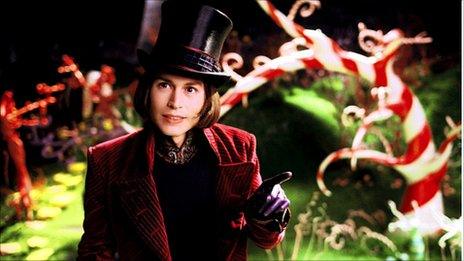The Witches: Backlash over film's portrayal of limb impairments
- Published
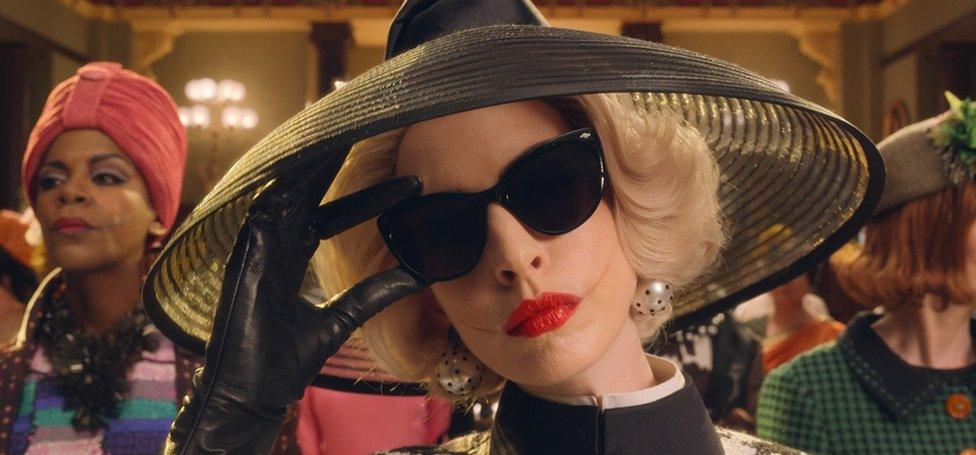
Anne Hathaway is one of the stars of The Witches
A new film version of Roald Dahl's novel The Witches has been criticised for its depictions of limb difference.
The film, which stars Anne Hathaway, features evil characters who have distinct hand and feet impairments.
Comedian Alex Brooker, who has hand and arm impairments, told the BBC that the images "jarred quite a lot" and could "add to the stigma" around disability.
Film studio Warner Bros said it was "deeply saddened" to learn the movie "could upset people with disabilities".
In a statement, the company said: "It was never the intention for viewers to feel that the fantastical, non-human creatures were meant to represent them".
Alex Brooker says the way the film depicts limb difference is "heartbreaking"
Directed by Robert Zemeckis, The Witches is the second big-screen version of Dahl's novel about disguised witches plotting to turn children into mice.
In the original book, the witches are described as having "thin curvy claws" instead of fingernails, and feet that "have square ends with no toes on them at all".
'What sort of message does this give?'
In the new film, Anne Hathaway's Grand High Witch and others are revealed to have three elongated fingers on each hand.
A trailer for the film, external also features a lesson on "how to identify witches" that highlights their "claws" and lack of toes.
The Witches had originally been set for a cinema release but, following the Covid-19 pandemic, was distributed on digital platforms last month. Shortly afterwards, the hashtag #NotAWitch began trending on social media.
Brooker said that when he first watched the film he was expecting "something very different" beneath the witches' gloves.
"It clearly looked like they'd removed some of the fingers," he told BBC reporter Matt Graveling. "I was like, 'I'm not sure that's on'.
"What sort of message does this give? To me It sends out a message that we should be scared of people with missing fingers.
"A lot of kids and adults have that - that's a life people live. It doesn't need to add to the stigma."
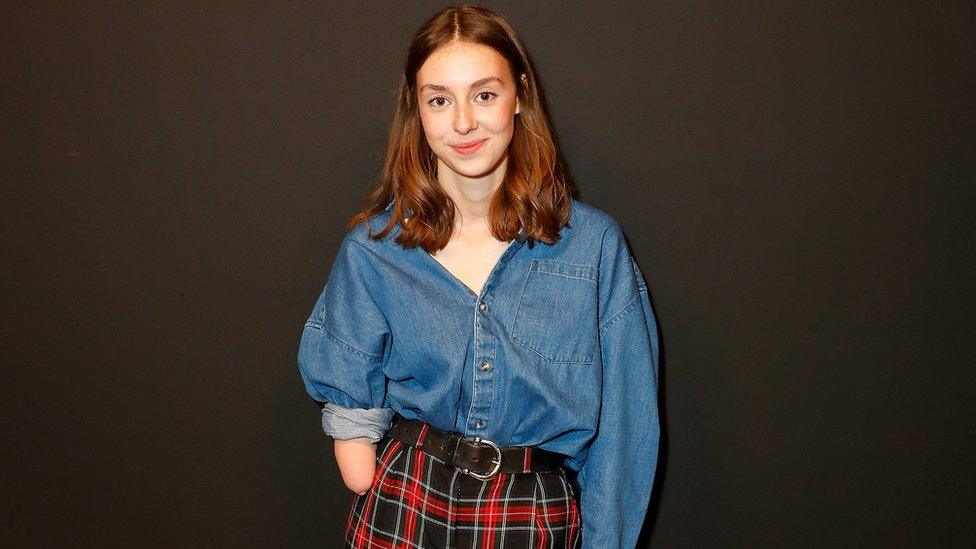
Actress Grace Mandeville said the film would make some young viewers scared of people with limb impairments
Actress and TV presenter Grace Mandeville said she was "really disappointed with the decision to give the villains in the movie a disability for absolutely no reason other than to make the character seem scarier".
She told BBC News: "The truth is children will watch this movie and some will then be scared of people that have limb impairments or ectrodactyly [a split hand] thanks to this film.
"I thought we were moving forward in this industry, but once again a movie has used scars and a disability to create a scary character."
She added: "I'm aware that this is just a movie to some people, but this affects the perception of disabled people more than you'll realise.
"I dread to think how a class of children would react to a new classmate who has a scar or a limb impairment after they've all watched this film."
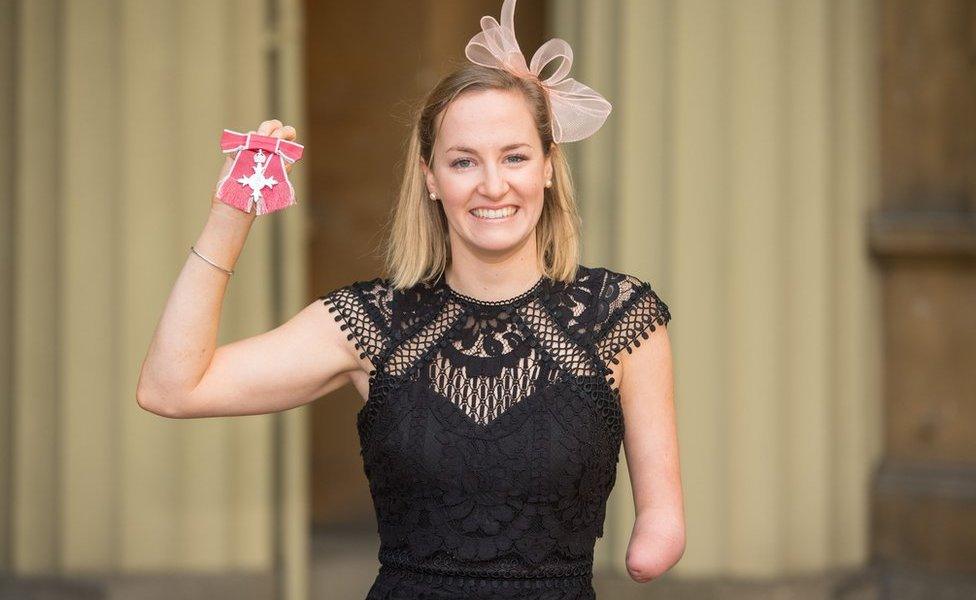
Paralympian Claire Cashmore, who received an MBE in 2007, said the film had left her "very confused/upset"
UK Paralympic swimmer and Para-triathlete Claire Cashmore was among the others who warned that the film could have a negative effect.
Cashmore, who was born without a left forearm, said images of Hathaway's character had left her "very confused/upset", and suggested Warner Bros should have sought feedback before making the film.
"We want disabilities to be normalised and be represented in a positive light rather than [be] associated with being a scary, evil witch," she wrote on Instagram, external.
Allow Instagram content?
This article contains content provided by Instagram. We ask for your permission before anything is loaded, as they may be using cookies and other technologies. You may want to read Meta’s Instagram cookie policy, external and privacy policy, external before accepting. To view this content choose ‘accept and continue’.
British Paralympic swimmer Amy Marren also criticised the film, external for showing "something that makes a person different" in a scary or monstrous light.
Former Coronation Street actress Melissa Johns, who was recently seen in BBC One drama Life, said, external "using disability as a costume and to highlight a character as a 'baddie'" was "not what we need".
The charity Reach has also criticised the film, external, saying it had left "members of the upper limb difference community... appalled and devastated".
In its statement, Warner Bros said it had "worked with designers and artists to come up with a new interpretation of the cat-like claws that are described in the book".

Follow us on Facebook, external or on Twitter @BBCNewsEnts, external. If you have a story suggestion email entertainment.news@bbc.co.uk, external.
- Published24 October 2020
- Published1 July 2020
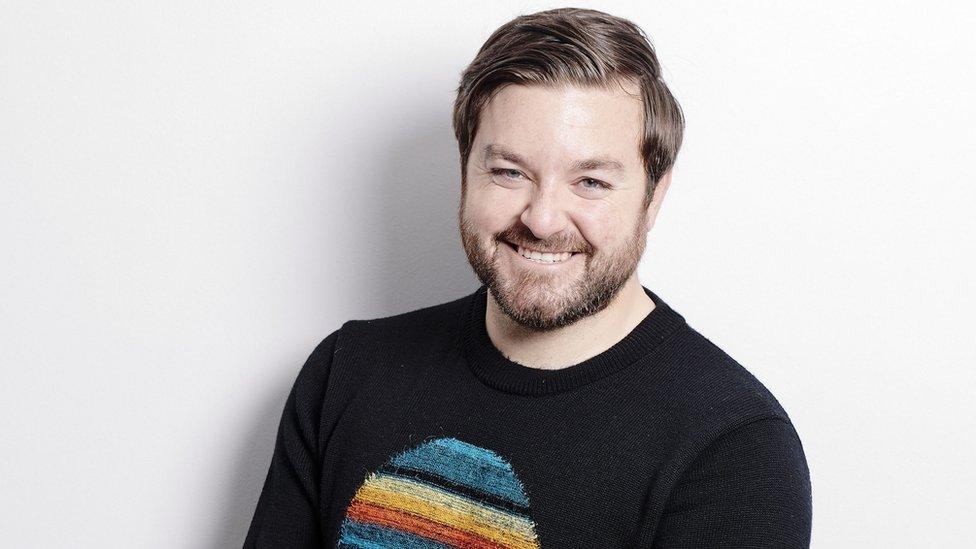
- Published12 September 2011
